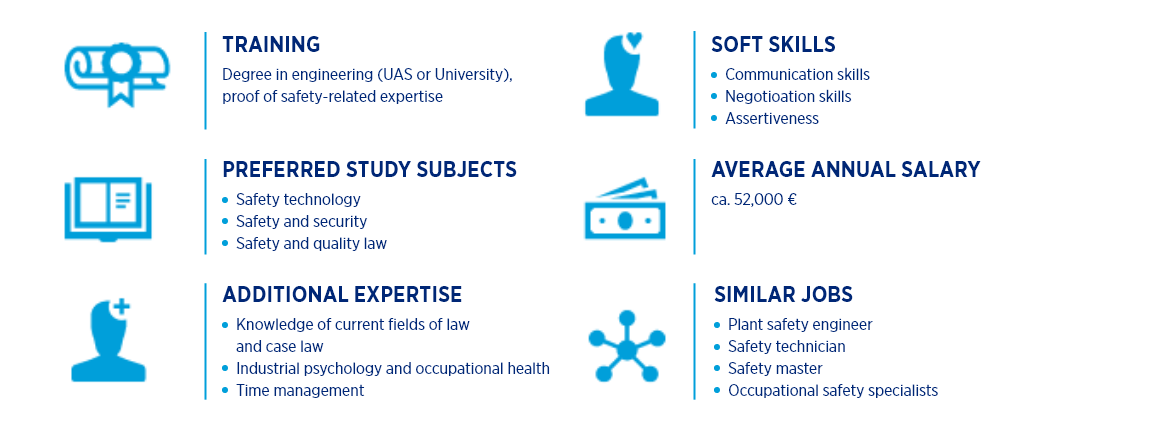Safety engineer
Are you looking for a job as a safety engineer (m/f/d)?
The safety of your colleagues is particularly important to you? Do you keep an eye on the legal situation as well as operational requirements? Then go one step further and apply your expertise as a safety engineer in a well-known company. Create plans and implement safety-relevant occupational safety and health measures where they are urgently needed.
Are you looking for a qualified safety engineer (m/f/d)?
Do you need safety engineers who can demonstrate many years of experience in your industry? Exactly those specialists who are up to date with the latest knowledge of legal and operational regulations and at the same time can communicate purposefully with you and your employees. Together we will find your future safety engineer for the planning and implementation of safety-related measures.
Are you looking for an exciting project as a safety engineer?
Have you already carried out safety measures in a wide variety of industries, trained employees and are familiar with the current legal situation and the implementation of occupational safety and health? Then contribute your knowledge to a new project and gain valuable experience in the process.




